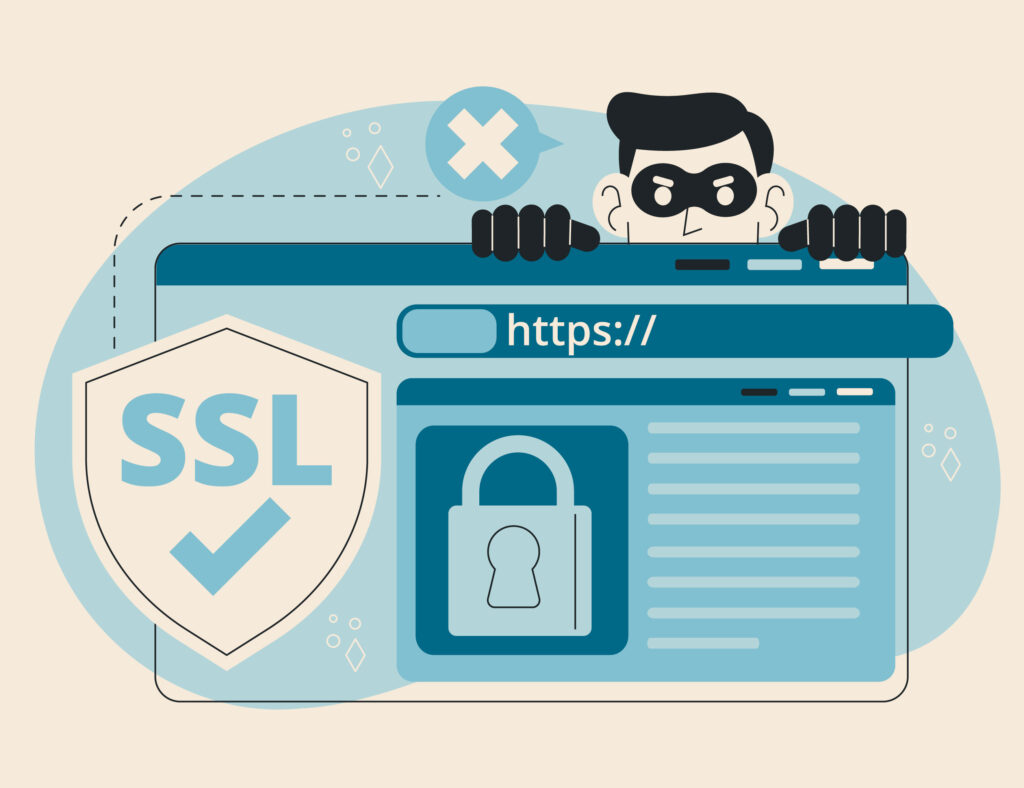In the era of digital connectivity, ensuring secure online communication is of paramount importance. The advent of e-commerce, online banking, and various digital services has necessitated the implementation of robust security measures to safeguard sensitive information transmitted over the internet. One such essential security component is the SSL (Secure Sockets Layer) certificate. This article delves into the intricacies of SSL certificates, elucidating their significance in ensuring secure online transactions and communications.

SSL Certificate Defined
An SSL certificate is a digital certificate that establishes a secure and encrypted connection between a user’s browser and a web server. This encryption ensures that data transmitted between the two parties remains confidential and cannot be intercepted by malicious entities. SSL certificates play a vital role in safeguarding sensitive information, such as credit card details, login credentials, and personal data, from potential cyber threats.
How SSL Certificates Work
The fundamental principle behind SSL certificates is encryption. When a user accesses a website with an SSL certificate, the server and browser engage in a process called the SSL handshake. During this handshake, the server presents its SSL certificate to the browser, which then verifies the authenticity of the certificate. This verification process involves checking the certificate issuer’s credibility and confirming that the certificate corresponds to the website’s domain.
Upon successful verification, an encrypted connection is established between the server and the browser. This encryption is achieved through complex cryptographic algorithms, which encode the data into an unintelligible format during transmission. Only the intended recipient’s server possesses the decryption key, ensuring that even if intercepted, the intercepted data remains incomprehensible.
Types of SSL Certificates
SSL certificates come in various types, each catering to different security needs:
-
Domain Validated (DV) Certificates: These certificates validate only the domain ownership and are commonly used for basic security needs.
-
Organization Validated (OV) Certificates: OV certificates require verification of both domain ownership and organizational details, providing a higher level of assurance.
-
Extended Validation (EV) Certificates: EV certificates offer the highest level of trust. They undergo rigorous validation processes, displaying the organization’s name prominently in the browser’s address bar.
Benefits of SSL Certificates
-
Data Privacy: SSL certificates ensure that sensitive data remains confidential during transmission, bolstering users’ confidence in online interactions.
-
Trust and Credibility: Websites with SSL certificates are perceived as more trustworthy by users due to the visible security indicators, such as the padlock icon and “https” in the URL.
-
SEO Advantages: Search engines, such as Google, consider SSL certificates as a ranking factor, thereby boosting the visibility of SSL-secured websites in search results.
-
Secure Transactions: SSL certificates are crucial for e-commerce websites, where secure transmission of credit card information is essential for safe transactions.
SSL and HTTPS
The implementation of SSL certificates results in websites adopting the “HTTPS” protocol, where the “S” stands for “Secure.” The inclusion of this protocol signifies to users that the website employs encryption, creating a secure environment for their online interactions. The absence of HTTPS can lead to warnings from modern browsers, deterring users from visiting the site due to potential security risks.
Challenges and Considerations
While SSL certificates significantly enhance online security, their proper implementation requires careful consideration:
-
Certificate Renewal: SSL certificates have an expiration date. Ensuring timely renewal is vital to maintaining uninterrupted security.
-
Mixed Content Issues: Websites with both secure (HTTPS) and non-secure (HTTP) content can lead to mixed content warnings, potentially undermining the security benefits.
-
Performance Impact: Encryption and decryption processes can marginally impact website performance. However, advancements in technology have minimized this impact.
Conclusion
In the digital age, the importance of safeguarding online interactions cannot be overstated. SSL certificates serve as the cornerstone of secure internet communication, establishing encrypted connections that thwart potential cyber threats. By fostering data privacy, trust, and secure transactions, SSL certificates contribute to a safer online ecosystem. As technology evolves, it is imperative for businesses, organizations, and individuals to prioritize the implementation of SSL certificates to ensure the confidentiality and integrity of their digital interactions.